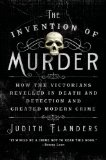Summary | Excerpt | Reviews | Beyond the book | Read-Alikes | Genres & Themes | Author Bio

An Extraordinary Edwardian Case of Deception and Intrigue
by Piu Marie EatwellOne of the most notorious and bizarre mysteries of the Edwardian age, for readers who loved The Suspicions of Mr. Whicher
At the close of the Victorian era, as now, privacy was power. The extraordinarily wealthy 5th Duke of Portland had a mania for it, hiding in his horsedrawn carriage and creating tunnels between buildings to avoid being seen. So when, in 1897, an elderly widow asked the court to exhume the grave of her late father-in-law, T. C. Druce, under the suspicion that he'd led a double life as the 5th Duke, no one could dismiss her claim. The eccentric duke, Anna Maria was sure, had faked his death as Druce, and, therefore, her son should inherit the Portland millions. A lurid, decade-long case was born. Uncovering new archival treasures and offering a "lively account of...the lies, deceit, and hypocrisy of Victorian society" (The Times), Piu Marie Eatwell evokes an era in transition, when the rise of sensationalist media blurred every fact into fiction, and when family secrets and fluid identities pushed class anxieties to new heights. 30 illustrations
I found the book as intriguing as its title; it reads like a cross between an Agatha Christie novel and a supermarket tabloid. The story of this riveting case is so deliciously twisted and convoluted that I found myself smiling in appreciation at each revelation, and I can imagine many readers feeling the same...continued
Full Review
(671 words)
This review is available to non-members for a limited time. For full access,
become a member today.
(Reviewed by Kim Kovacs).
 William John Cavendish-Bentinck-Scott, 5th Duke of Portland and the eponymous "Dead Duke" of Piu Marie Eatwell's book, was undeniably eccentric. He was extremely reclusive, never inviting anyone to his home at Welbeck Abbey and prohibiting his servants and workmen from acknowledging his presence in any way (any who did were immediately expelled from the property). He communicated with his staff only via letter; an inbox and outbox were fastened to his chamber door to facilitate the communication. Perhaps most interestingly, he had miles of tunnels excavated under his property which led through many underground rooms (such as an enormous ballroom, thought to be the second largest in the country at the time).
William John Cavendish-Bentinck-Scott, 5th Duke of Portland and the eponymous "Dead Duke" of Piu Marie Eatwell's book, was undeniably eccentric. He was extremely reclusive, never inviting anyone to his home at Welbeck Abbey and prohibiting his servants and workmen from acknowledging his presence in any way (any who did were immediately expelled from the property). He communicated with his staff only via letter; an inbox and outbox were fastened to his chamber door to facilitate the communication. Perhaps most interestingly, he had miles of tunnels excavated under his property which led through many underground rooms (such as an enormous ballroom, thought to be the second largest in the country at the time).
Needless to say, he was not ...
This "beyond the book" feature is available to non-members for a limited time. Join today for full access.

If you liked The Dead Duke, His Secret Wife, and the Missing Corpse, try these:

by Laura Cumming
Published 2016
From one of the world's most expert art critics, the incredible true story - part art history and part mystery - of a Velázquez portrait that went missing and the obsessed nineteenth-century bookseller determined to prove he had found it.

by Judith Flanders
Published 2014
In this fascinating exploration of murder in the nineteenth century, Judith Flanders examines some of the most gripping cases that captivated the Victorians and gave rise to the first detective fiction.